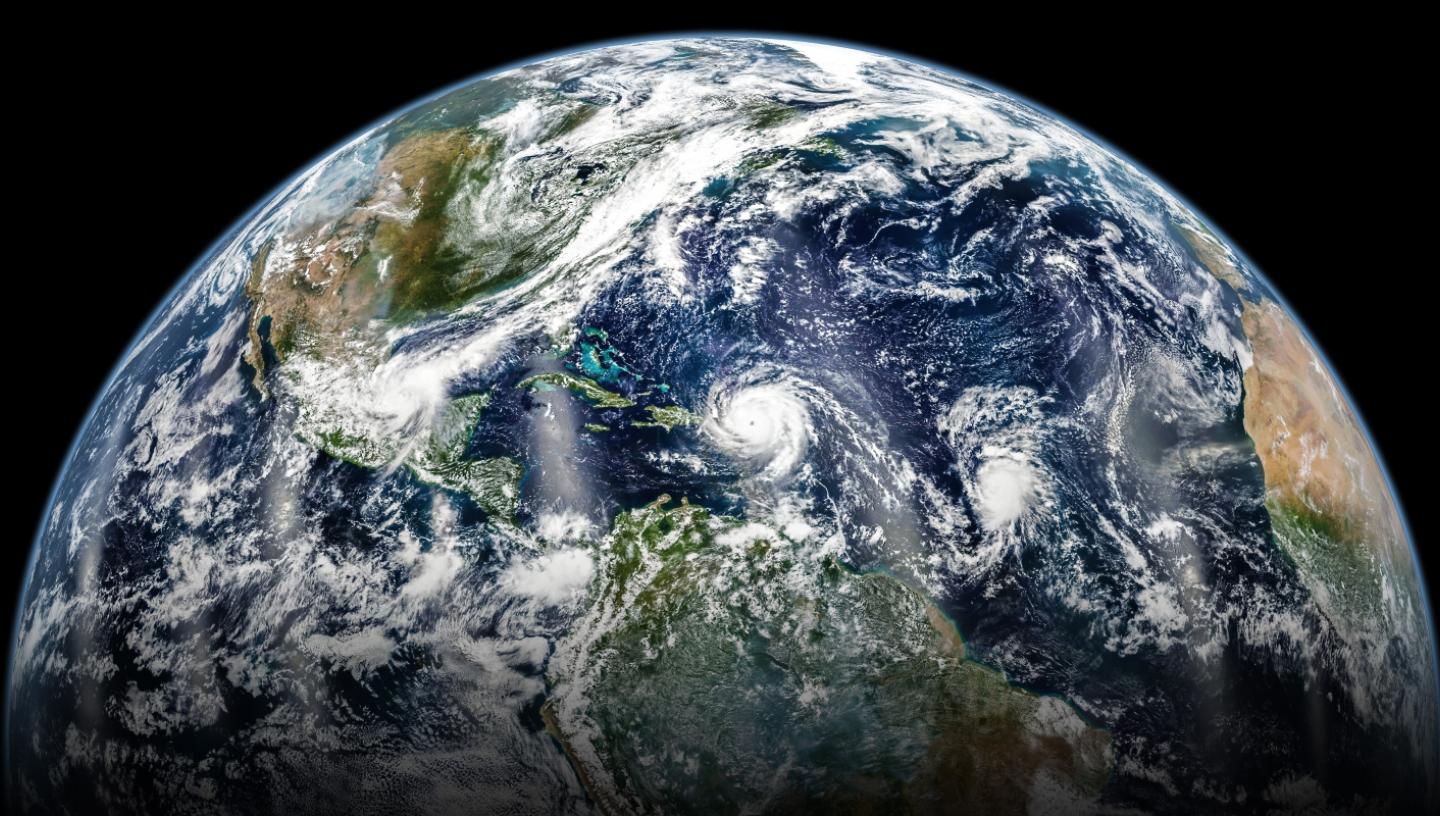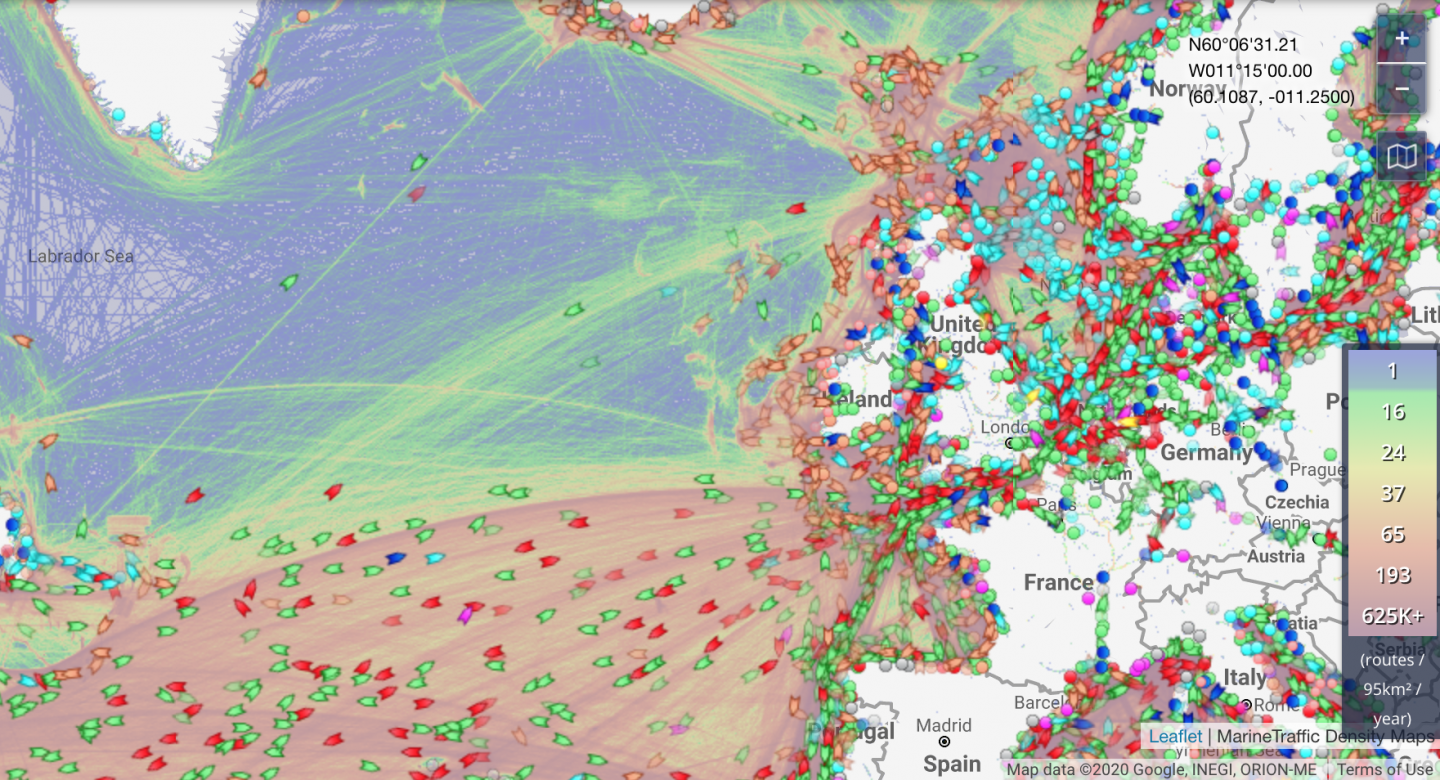
5 live streams to help you explore the world from home
Spot penguins in Antarctica, see the Earth from the International Space Station, and take to the high seas from your sofa.
There's a whole universe out there to discover - you just need to know where to look.
Discover more great stories here
1. Watch the Earth live from the International Space Station
.embed-container { position: relative; padding-bottom: 56.25%; height: 0; overflow: hidden; max-width: 100%; } .embed-container iframe, .embed-container object, .embed-container embed { position: absolute; top: 0; left: 0; width: 100%; height: 100%; }NASA's planned mission to the Moon may have been delayed by the coronavirus, but work on the International Space Station (ISS) carries on. That's good news for anyone stuck at home, as the cameras mounted on the station are still live streaming stunning views of the Earth from orbit.
The NASA live stream is occasionally interrupted due to signal issues, but you can tune in anytime to see the view from Earth orbit. And if you want to try see the ISS in the night sky back here on Earth, NASA's Spot the Station website has information explaining when and where to look for the ISS.
New astronauts joining the ISS meanwhile are undergoing strict quarantine measures ahead of launch in order to ensure that they are infection-free by the time they reach the station.
How to see the International Space Station
2. Help scientists spot penguins in the Antarctic

(Wikimedia Commons: photo by Dariusz Jemielniak)
Citizen science projects are a fantastic way to do something helpful from the comfort of your own sofa.
There are a whole host of projects currently taking place, and many have already seen a huge surge in interest. Climate scientist Ed Hawkins for example reported that in just nine hours over 6,000 volunteers joined in with a project to digitise historic rainfall data in the UK.
If you'd rather go a little further afield for your citizen science however, how about Antarctica? A project led by University of Oxford researchers is asking volunteers to watch timelapse footage from remote Antarctic regions.
The aim? Click whenever they spot a penguin!
It's simple, fun, and there are lots of education resources to help get children involved too.
3. Watch ships sail across the world's oceans

Realtime shipping information from sites such as Marine Traffic show just how busy our oceans and trade routes continue to be.
If you'd rather follow a particular ship, the British Antarctic Survey vessel RRS James Clark Ross continues to journey across the Southern Ocean. The image updates every 15 minutes, and if you're lucky you could see a spectacular Antarctic sunset. If you're less lucky, you could find yourself in a wild Southern Ocean storm...
Watch the RRS James Clark Ross webcam
4. Watch live wildlife webcams

From Dorset barn owls to badgers in Cumbria, the Wildlife Trusts website has over a dozen live webcams showing animals from across the UK. Tune in and bring a little wilderness back into your home.
Zoos meanwhile may be closed, but the animals still need feeding. Places like Chester Zoo have begun live streaming some of their feeding sessions online, so even if you can't visit you can still take part in the animal antics.
5. Explore the universe with live telescope feeds

The Royal Observatory may be closed, but our astronomers' work continues online. Watch their latest #ObservatoryOnline videos on Twitter and check out their learning resources hub here.
There are other ways to explore the universe online too. The huge European Southern Observatory (ESO) site in Chile has a number of webcams set up to see the night sky, while online telescope service Slooh hosts live astronomy events and even allows members to take control of their own scope.
Finally, just like Penguin Watch, there are plenty of astronomy and space research projects to get involved with on citizen science website Zooniverse and other research sites. Check out some examples below.
Help explore distant galaxies with Galaxy Zoo